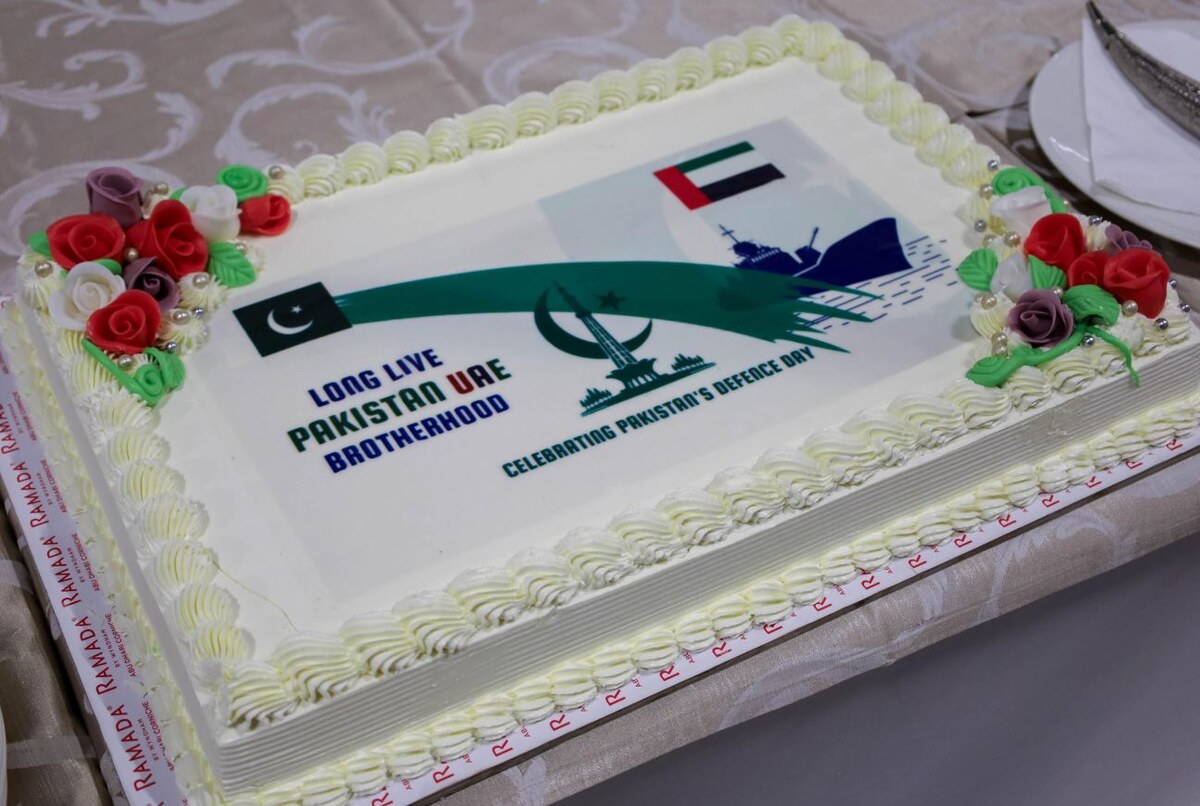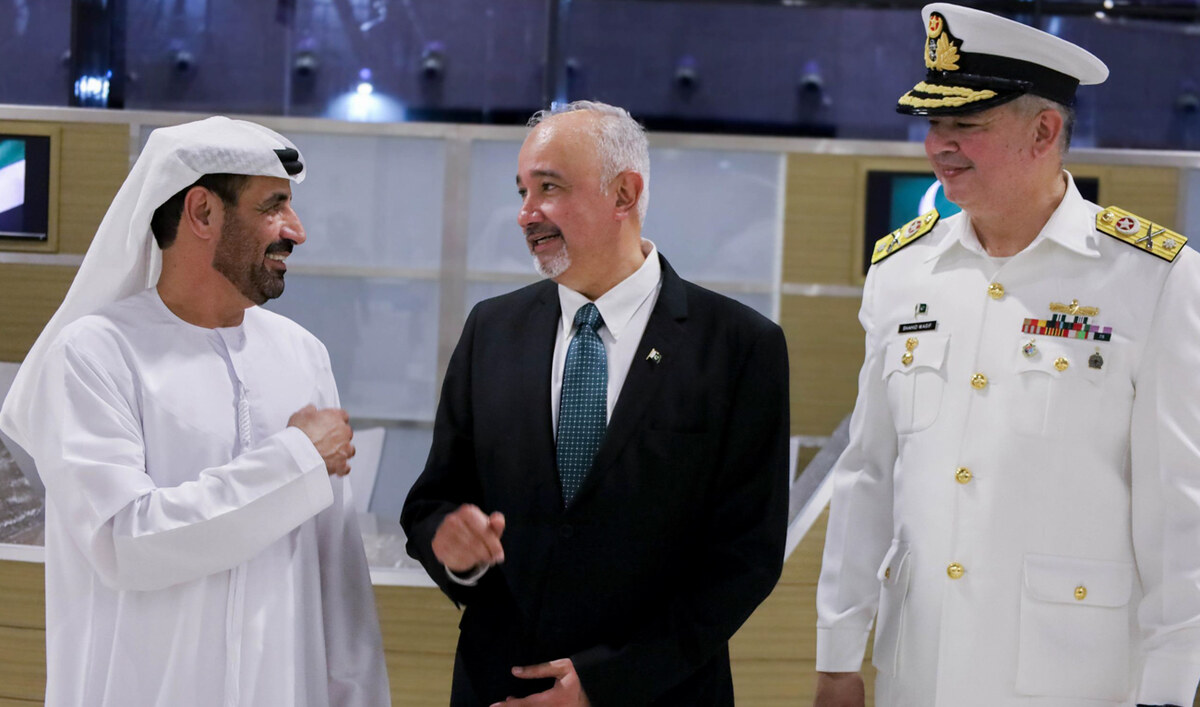ISLAMABAD: Islamabad’s Embassy in Abu Dhabi on Thursday hosted a reception to mark Pakistan’s Defense Day onboard Pakistan Navy Ship (PNS) Shamsheer at the Cruise Terminal, Mina Zayed Port, Abu Dhabi, the mission said in a statement.
Pakistan celebrates Defense Day each year to honor the soldiers who fought against India in the 1965 war.
Pakistan’s envoy to the UAE, Ambassador Faisal Niaz Tirmizi, along with Commodore Shahid Wasif SI (M), Mission Commander of the Pakistan Navy, welcomed chief guest General Salem Saeed Al Jabri, UAE’s Assistant Foreign Minister for Military and Security Affairs, and Brig. Abdullah Al Mohairbi, Deputy Commander of the UAE Navy, at the reception, which was attended by members of the diplomatic corps and officials of the UAE government.
Exercise “Nasl Al Bahr’ between Pakistan and the UAE has also started after Pakistan Navy’s flotilla including Shamsheer and Haibat arrived at Port Zayed earlier this week.
“In his welcome address, Commodore Shahid Wasif said that Pakistan and the UAE have commenced bilateral exercise ‘Nasl Al Bahr’ in the UAE. He elaborated that the exercise is aimed to strengthen cooperation between two navies, enhance interoperability and build their capacities,” Pakistan’s embassy in Abu Dhabi said in a statement.

This handout photograph, taken and released by Pakistan Embassy, shows a customized cake at a special event to mark Pakistan’s Defense Day onboard Pakistan Navy Ship Shamsheer at the Cruise Terminal, Mina Zayed Port in Abu Dhabi on September 5, 2024. (Photo courtesy: Pakistan Embassy)
Tirmizi said Pakistan and the UAE army were “traditional partners” in achieving peace, stability and security in the region.
“The history of close collaboration between the two militaries could be traced farther than the unification of the Emirates,” the ambassador said. “The relationship between the two sides, having strong roots, has now transformed into a stronger partnership, which is clearly evident by the fact that UAE Navy have hosted Pakistan Navy’s PN flotilla for the fifth edition of exercise Nasl Al Bahr.”

In this handout photograph, taken and released by Pakistan Embassy, Pakistan’s envoy to the UAE, Ambassador Faisal Niaz Tirmizi (C), along with Commodore Shahid Wasif SI (M) (R), Mission Commander of the Pakistan Navy, and General Salem Saeed Al Jabri (L), UAE’s Assistant Foreign Minister for Military and Security Affairs, gesture at a ceremony to mark Pakistan’s Defense Day onboard Pakistan Navy Ship Shamsheer at the Cruise Terminal, Mina Zayed Port in Abu Dhabi on September 5, 2024. (Photo courtesy: Pakistan Embassy)
The UAE is Pakistan’s third-largest trading partner after China and the United States. It is also home to more than a million Pakistani expatriates and the second-largest source of remittances to Pakistan after Saudi Arabia.



















